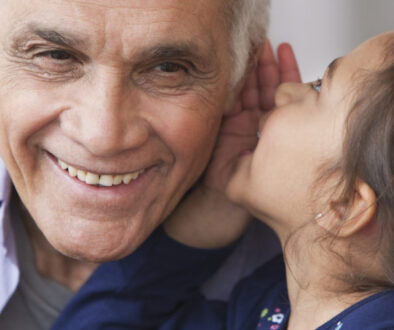Empathy: The key to connecting with others
This quote captures the definition of empathy beautifully:
“If you can learn a simple trick, Scout, you’ll get along a lot better with all kinds of folks. You never really understand a person until you consider things from his point of view, until you climb inside of his skin and walk around in it.”
~ Atticus Finch in To Kill a Mockingbird (1962)
What is Empathy?
Empathy is our ability to understand another person’s condition from their perspective. You place yourself in their shoes and feel what they’re feeling.

But empathy isn’t solely a psychological process; it’s also a physiological one. Neuroscientists have discovered the existence of ‘empathy neurons’ called mirror neurons.
By conducting brain scans of different people in simulated situations, it was discovered that our brains can also experience what other people experience. Consider these examples:
- Someone smiles at us and we instinctively smile back.
- Listening to the laugh tracks of a funny sitcom are also effective at making us laugh.
- When observing someone in extreme pain, we can’t help but wince as if we’re also feeling their pain.
- When we see a musician or a dancer perform, the areas of the brain that are active in the performer are also active in our brains. That’s why there are times when it almost feels like we’re performing or moving in harmony with them.
The difference between empathy and sympathy
Empathy and sympathy are often used interchangeably, however, there is a difference:
- Empathy is gaining understanding of another’s feelings and experience by actively listening and observing the other person and the impact the situation is having on them. We do find it easier to empathise if we’ve experienced a similar situation.
With empathy we are more focused on the other person’s perspective. - Sympathy is more about us feeling pity or sorrow for someone else’s misfortune, often because we think about how we might feel.
Importantly, if you’re having a strong emotional response to the other person’s experience then you’re probably filtering it through one of your own challenging experiences and then you’re prone to assumptions.
- Empathy might say: ‘You look really sad and sound dejected,’ as a reflection or observation.
- Where as sympathy might say: ‘You poor thing. I know how upset you must feel’, more as a comment based on personal experience.
There is connection in both sympathy and empathy, but empathy is more likely to help the other person feel listened to, understood and acknowledged.
How does empathy help people?
People who are capable of empathising are more likely to build rapport, develop trust and form closer bonds and deeper connections with other people. 
Empathetic individuals often consider the feelings of others before they act or speak. This makes them more socially adept and better able to help relieve the suffering of others. It also allows them to be more open and understanding of the opinions, thoughts and feelings of others.
Empathy allows people to foster a deeper understanding of each other, no matter how different their lives may be. It also reinforces the popular adage: ‘Do unto others as you would have them do unto you.’
Here are some ways empathy is helpful in your daily life:
- You can be more attuned to the needs of others, whether they’re customers, co-workers, friends or loved ones.
- It helps you to listen with compassion in order to understand what others are feeling, without judgement.
- Developing empathy can help you predict the actions and reactions of those you interact with.
- Empathy improves your ability to understand the perspective of others, and in turn, you can also communicate your point of view to others more effectively.
- You’ll find it easier to deal with other people’s negativity since you’re able to empathise with what they’re feeling and why they’re feeling that way. You don’t necessarily feel the way they feel, but in understanding them, you can deal with them better.
Empathy doesn’t mean you have to feel what others feel or think what they think. Instead, you’re simply putting some perspective into the way you think in order to see things from their point of view.
Studies about Empathy in Children
Teaching your child empathy is one of the most important life skills you can give them. Children who can empathise are likely to have more friends and be looked to for leadership. There are numerous studies on the importance of empathy in children. Here are just two:
- Children who are of the same sex or the same ethnicity tend to be more empathetic towards each other (maybe because it’s easier to imagine being in their shoes). Role playing techniques are an effective way of training children to be more empathetic. If a child has a propensity to act out or be destructive, role-playing techniques can help instil empathy, and thus make them see that their actions can hurt others.
(Source: https://psycnet.apa.org/psycinfo/1975-27235-001)
- A study showed that pro-social children are more popular with their peers and show greater empathy than other children. Pro-social children and bullying victims responded more constructively than bullies to socially awkward situations. Bullies were also shown to be less aware of the negative consequences of their actions.
(Source: https://onlinelibrary.wiley.com/doi/10.1348/026151003322277757/abstract)
Dealing with the Boundaries of Empathy
Though the ability to empathise is a highly useful skill to develop, you must also know that there may be negative effects of empathising or sympathising too deeply. If we share in the suffering of another person, we might unwittingly internalise their feelings as our own and feel exhausted or drained.
According to research published in the journal Cerebral Cortex, we can better cope with other people’s negative emotions when we strengthen our compassion skills.
The participants of the study were shown a series of videos of people in distress (e.g. people crying after a disaster), and their brain activity was then recorded. They then went to a loving-kindness meditation class where they were taught how to extend feelings of warmth and care towards themselves and towards other people (a close person, a neutral person, a person in difficulty and complete strangers) in order to hone their compassion skills.
After attending the meditation class, the participants were again shown videos of people in distress with their brain activity recorded as well. The study showed that compassion training allowed the participants to experience more positive emotion, meaning they were more capable of dealing with distress. They also fared better than the control group that didn’t attend the same class.
Tips for developing stronger empathy
Like any new skill, practice makes perfect and empathy is no different. It comes about through daily conscious choices and actions of your mindset and behaviour towards others.
This is a summary of three tips provided in a Psychology Today article titled: The Neuroscience of Empathy to develop stronger empathy for others:
- Develop compassion through mindfulness and loving kindness meditation (LKM).To practice LKM, take a few minutes every day to sit quietly and send loving and compassionate thoughts to:
1) Family and friends
2) Someone with whom you have tension or a conflict
3) Strangers around the world who are suffering
4) Self-compassion, forgiveness and self-love to yourself - Challenging yourself to endure physical hardship like a gruelling workout or training for a marathon not only helps you to develop strength and resilience, but also an understanding of pain and suffering.

- Contributing and giving back through prosocial behaviour and volunteerism for people less fortunate than yourself.
All of these activities help to strengthen the neural pathways in the brain associated with empathy.
Have you ever been in a situation where empathy was able to guide your actions to foster a more meaningful bond with others? What’s it like to experience an empathetic friend?
Please share your comments below.





